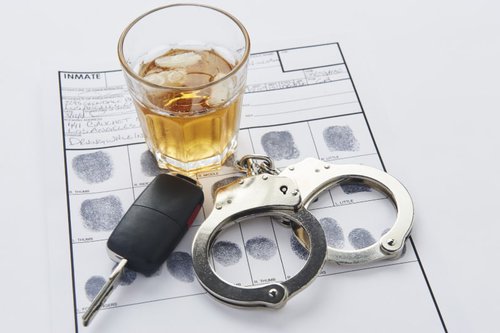When Can an Impaired Driving Conviction be Pardoned in Canada?

When clients ask the criminal defence lawyers of TorontoDUI how to get an official pardon for their impaired driving conviction, they're usually surprised by the lack of a simple answer. For example, if you were to ask them when you can apply for a pardon after a DUI conviction, the answer could be three, five, or 10 years, depending on a range of variables.
"When it comes to questions about DUI 'pardons,'" says TorontoDUI co-founding partner Jeff Mass, "the first thing we tell clients is that the Canadian government doesn't offer them. Instead, it offers those convicted of criminal offences to apply for what's known as a 'record suspension.' Rather than forgive an offender by erasing the record of the offence with a pardon, the government suspends public access to the criminal record from the Canadian Police Information Centre."
TorontoDUI co-founding partner Robbie Tsang adds that this is as close as someone can get in Canada to receiving a full pardon. "Canada's Criminal Records Act allows those who've received a record suspension to legally deny that they have a criminal record or conviction in most situations," he says. "For example, in filling out a private sector job application or rental forms, you can legally deny your DUI conviction. However, you cannot deny it with government-related jobs requiring security clearance, and Ontario laws require disclosure of specific convictions for jobs involving vulnerable populations."
The complexity of Canadian record suspension rules stems from multiple amendments and regulatory revisions to the Criminal Records Act (CRA) over the past two decades, including the renaming of "pardons" to "record suspensions" in 2010. Among the changes, let's start with some good news: as of January 1, 2022, the application fee dropped from $631 to $50.
Let's examine what else you need to know about record suspensions for DUI convictions and how long you might have to wait to apply for one.
What Exactly is a Record Suspension?
According to the Government of Canada, a "record suspension allows people who were convicted of a criminal offence but have completed their sentence and demonstrated that they are law-biding citizens for a proscribed number of years," to effectively remove their criminal record from public viewing on the Canadian Police Information Centre. The stated purpose of the record suspension is to help those convicted access employment and educational opportunities and to reintegrate into society.
Managed by the Parole Board of Canada, once someone's criminal record has been suspended, it can only be reviewed by government officials under specific circumstances, including:
- A court order, typically spurred by a police investigation.
- National security considerations.
- Vulnerable sector checks in provinces that require them.
Thus, public requests for suspended criminal records will not reveal that such records ever existed, and police can review them only with a court order. However, the Parole Board of Canada can revoke the record suspensions of those who:
- Are convicted of a new indictable offence, and some summary offences.
- Are found to no longer be of good conduct.
- Were found to have made false, misleading, or withheld information in their application.
- Were found to be ineligible for the suspension when it was ordered.
Some criminal offences — though not those involving DUI — are ineligible for record suspension. The eligibility time frames for a record suspension depend on the type of offence and when it was committed. Eligibility also requires that those applying have completed their sentence, including imprisonment, probation, and payment of any fines and restitution.
The timing of the criminal act affects eligibility for applying because the criteria for eligibility changed with new amendments, but the previous criteria were allowed to be applied retroactively. These are the eligibility time frames for crimes committed:
Before June 29, 2010 —
- Five years for indictable offences.
- Three years for summary conviction offences.
Between June 29, 2010 and March 12, 2012 —
- 10 years for serious personal injury indictable offences in which the applicant was sentenced to two or more years of prison and CRA Schedule 1 offences (primarily sexual crimes) prosecuted by indictment.
- Five years for any other indictable offences and CRA Schedule 1 offences punished on summary conviction.
- Three years for other offences punished on summary conviction.
On or after March 13, 2012 —
- 10 years for indictable offences.
- Five years for summary conviction offences.
- CRA Schedule 1 offences and those with three or more indictable offences punished with a sentence of two or more years are ineligible.

Record Suspensions for DUI Convictions
All DUI-related offences are eligible for criminal record suspension. Most DUI offenders who committed their offence before 2012 are likely eligible to apply for it now, but we'll let you do the math. Those convicted of summary conviction DUI offences after March 13, 2012, are eligible five years after completing the last of their sentencing conditions. Those convicted of an indictable DUI offence can apply for a suspension 10 years after the last of their punishment has ended. For example, a DUI offender released from prison in 2022 for a 2015 indictable DUI offence may not be eligible until 2032. If the offender were subject to two years of probation after release, the earliest eligibility would likely be in 2035. We'll note again that anyone with three or more indictable offence convictions that carried prison sentences of two or more years is ineligible for the pardon.
To apply for a record suspension from the Parole Board of Canada, you must carefully follow the application instructions , which include:
- Getting a copy of your criminal record.
- Getting your fingerprints taken by the police or an accredited service.
- Retrieving the court information of your conviction that includes proof and date of payment for any fines and court-ordered fees.
- Getting a copy of your military conduct sheet, if you are a current or former member of the Canadian Armed Forces.
- Getting a local police records check for each city or town you've lived in over the past five years.
- Photocopying valid, government-issued documents that support your identity.
- Completing the Schedule 1 Exception form if convicted of an indictable offence.
- Filling out the Record Suspension application form.
- Completing the Measurable Benefit/Sustained Rehabilitation form, in which you clearly describe how the record suspension will provide you "with a measurable benefit and sustain your rehabilitation into society as a law-abiding citizen."
- Submitting the application with the $50 processing fee.
"A record suspension doesn't erase your conviction, but it gives you a real chance to move forward without your past defining your future," explains Jeff Mass, co-founding partner of TorontoDUI . "With careful planning and a complete application, many Canadians can restore their opportunities in work, education, and everyday life."
Avoid the Need for a Pardon with Expert DUI Defence in Toronto
Clearing your reputation with a record suspension is just one of many aggravations you'll face if you're convicted of DUI in Canada. The legal experts at TorontoDUI strongly encourage everyone not to drive while impaired. However, should you fail to heed this advice, they suggest you secure the best possible DUI criminal defence if Greater Toronto Area police arrest you for DUI. To learn more about how the criminal defence lawyers at TorontoDUI can help strategize an effective defence against your impaired driving charges, contact them today for a free consultation.
